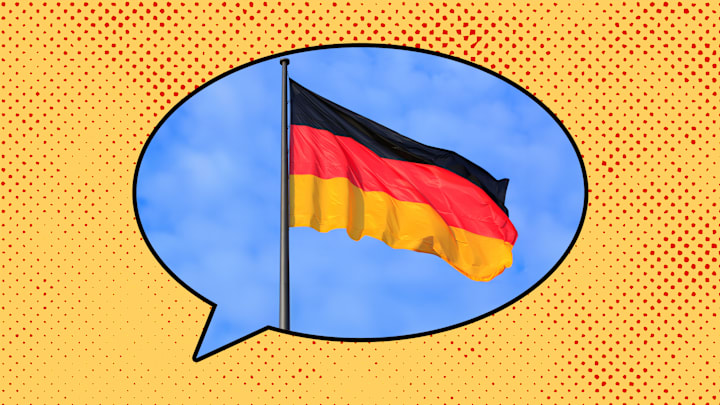German is known for its extra-long compound words. When Mark Twain complained that some German words were “so long they have a perspective,” he was thinking of words like Freundschaftsbezeigungen (“demonstrations of friendship”) and Generalstaatsverordnetenversammlungen (“general states representatives meetings”).
Long German words were in the news in 2013 when many sources reported that Germany had “lost its longest word” because the European Union removed a law from its books called Rindfleischetikettierungsüberwachungsaufgabenübertragungsgesetz (“the law for the delegation of monitoring beef labeling”).
But Germany had not in fact lost its longest word, because the process for forming these words is an active, productive part of the language, and the potential exists for creating words even longer, if so needed in the moment. How does that process work?
This lively animation takes you, step by step, through what’s involved in creating Rhababerbarbarabarbarbarenbartbarbierbierbarbärbel, a completely valid (and probably never before uttered) word.
The video is in German, but that shouldn’t deter you. The artwork makes it pretty clear what’s happening, meaningwise. Here are a few clues to help you follow the steps:
- There’s a girl named Barbara.
- She is known for her rhubarb cake.
- So they call her “Rhubarb Barbara.”
- To sell her cake, she opens a bar.
- It is frequented by three barbarians.
- They have beards.
- When they want to get their beards groomed they go to the barber.
- He goes to their bar to eat some cake, and then wants to drink a special beer.
- You can only get his special beer at a special bar that sells it.
- Where the bartender’s name is Barbie.
- She’s the Barbie of the bar where the beer of the beard barber for the barbarians of Rhubarb’s Barbara’s bar is sold. But all in one word.
- At the end, the barbarians, the barber, Barbie, and Barbara all go to the bar for a beer. You might need one too after this. Prost!
Now that you know how really long German words are constructed, read up on some laugh-out-loud German insults, from Bananenbieger (“banana bender,” a person who can’t seem to focus) to Hosenscheißer (or “trouser-pooper”—a coward).
A version of this story ran in 2013; it has been updated for 2023.
